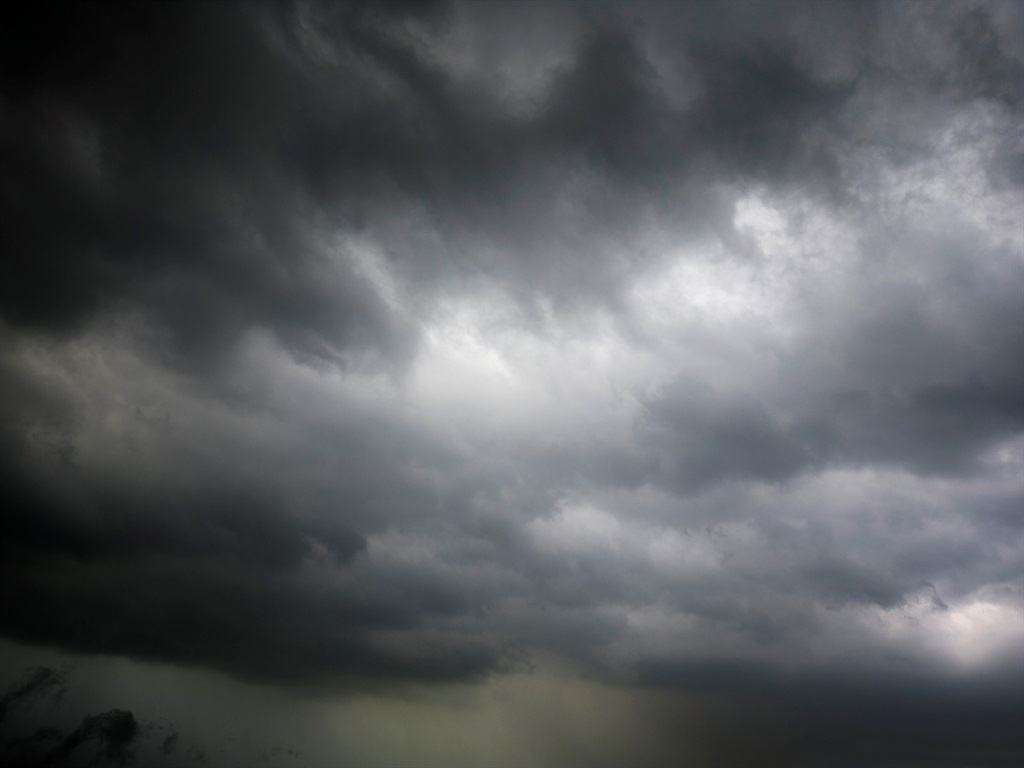
- Load shedding has been interrupting the availability of some of the data instruments of the SA Weather Service.
- CEO Ishaam Abader assures that the weather service has still been able to issue early warning systems for severe weather.
- A meteorologist, however, says that services, especially from radar, are compromised.
- For climate change news and analysis, go to News24 Climate Future.
Power outages and failing battery backup systems owing to extended load shedding negatively impacted some of the weather service's data collection equipment, members of Parliament have heard.
And while the weather service says it has been able to work around the problem, some experts are concerned that the ability to issue severe weather warnings timeously has been compromised.
The South African Weather Service on Wednesday briefed the portfolio committee on forestry, fisheries and environment on its annual report for the 2022/23 financial year.
The weather service met most targets of its key performance areas – except one that related to its infrastructure and information or data systems.
CEO Ishaam Abader walked members of Parliament through some of the issues that the weather service encountered in the management of its infrastructure as well as data quality.
It became apparent that load shedding was impacting the availability of its automatic weather station infrastructure – specifically sensors. The observations from automatic weather stations are used by researchers to track climate change.
The load shedding also impacted the signal that allows for the transmission of information from the stations to the computers in the SAWS office, explained Abader. The SAWS relies on contractors or mobile operators like Vodacom or MTN for the transmission of information. Abader said the weather service can't really control how these service providers manage power outages.
As a corrective measure, it is looking to rely on solar panels for power, as well as LTE modems, to address the signal issue.
Similarly, load shedding impacted equipment measuring greenhouse gases – known as Global Atmospheric Watch Infrastructure. Load shedding exceeded the available power from backup systems. The SAWS is looking to use alternative equipment and is also looking to improve its backup power systems.
The availability of its radars, lightning detection network infrastructure and a specific group of air quality stations were also affected by load shedding.
It came at the cost to the SAWS's revenue, with it having lost key clients. Certain forecast products are dependent on information from radars, which were negatively impacted by load shedding.
READ | September was hottest on record by 'extraordinary' margin - EU climate monitor
Abader, however, assured concerned members of Parliament that while some of the SAWS infrastructure is not functioning optimally due to load shedding, it is still able to deliver necessary services.
"I can give a commitment we have been providing the necessary services," Abader said, referencing early warning systems that have been used to communicate severe weather ahead of time, such as the recent storm surge that hit coastal provinces.
Abader said he can give these assurances because the weather service does not rely only on one set of instruments to do forecasting and weather prediction.
"It might be that the radars might not be optimally functional, but it doesn't necessarily mean we are unable to use other means like satellites and other instruments like lightning detection networks to provide services," he said.
'Hampering' severe weather warnings
Meteorologist Professor Liesl Dyson of the University of Pretoria, however, is not convinced that services are not compromised, especially when considering the information radar provides.
"The radar has the ability to see severe storms," said Dyson. "Satellites give a broad overview, but the radar gives the information to issue very accurate warnings," Dyson added. There are certain characteristics of a storm that can't be seen or detected via satellite. "It is really hampering, in my opinion, the ability of forecasters to issue timeous warnings of severe weather."
Dyson explained that the information from the radar is often used to send SMS warnings by insurance companies for people to move their vehicles.
Additionally, from a research perspective, it is an issue that radars have not been working. Research feeds into better forecasting, Dyson added.
"If you don't observe it, it's gone. You can't go back and get it."
World Weather Attribution, which monitors extreme weather from around the world, similarly highlighted the importance of accessible, reliable and quality weather observations to improve our understanding of climate systems in different regions.
"Reliable long-term weather data is necessary to identify changes and trends in the climate. Without accurate and consistent data, our understanding of climatic processes, interactions, and feedback mechanisms would be limited."
Improving understanding of climate systems also helps with the provision of "robust" early warning systems as well as climate information that will inform policies and interventions around climate change.




 Publications
Publications
 Partners
Partners












